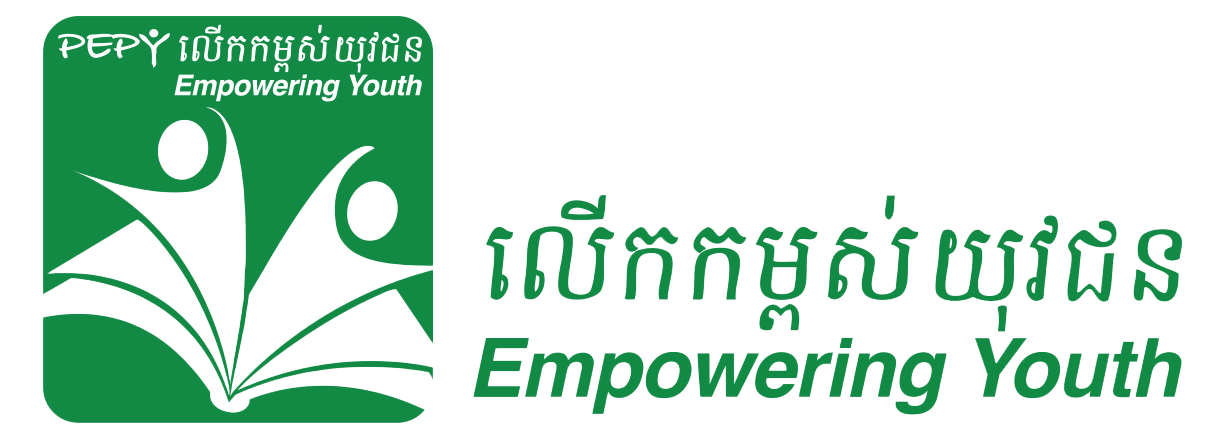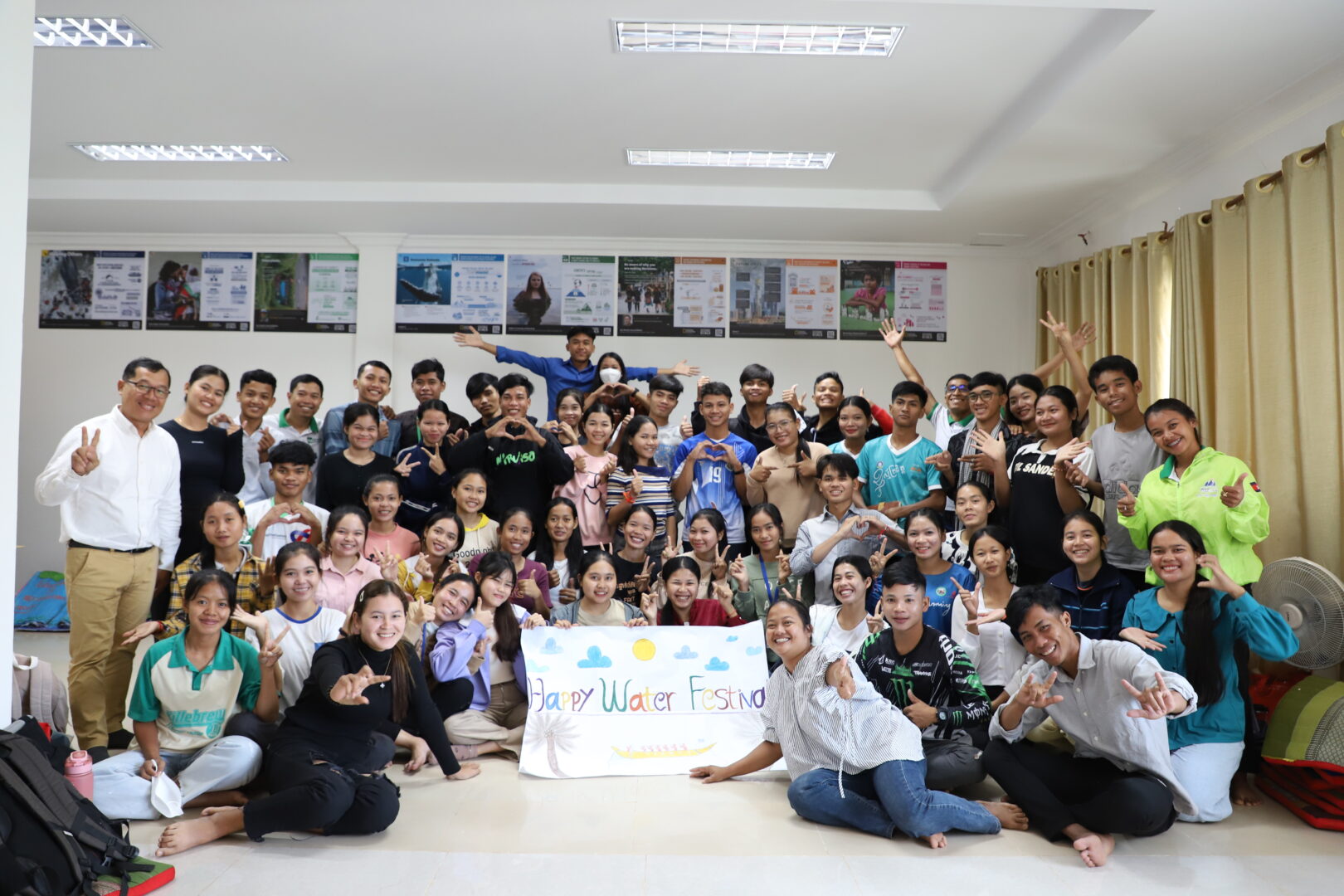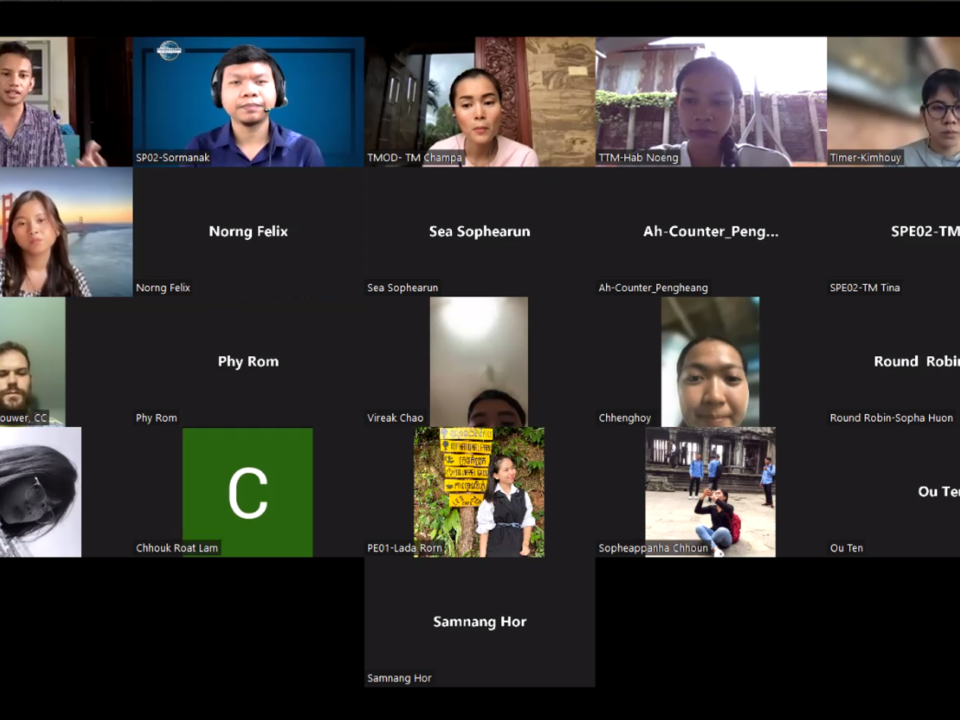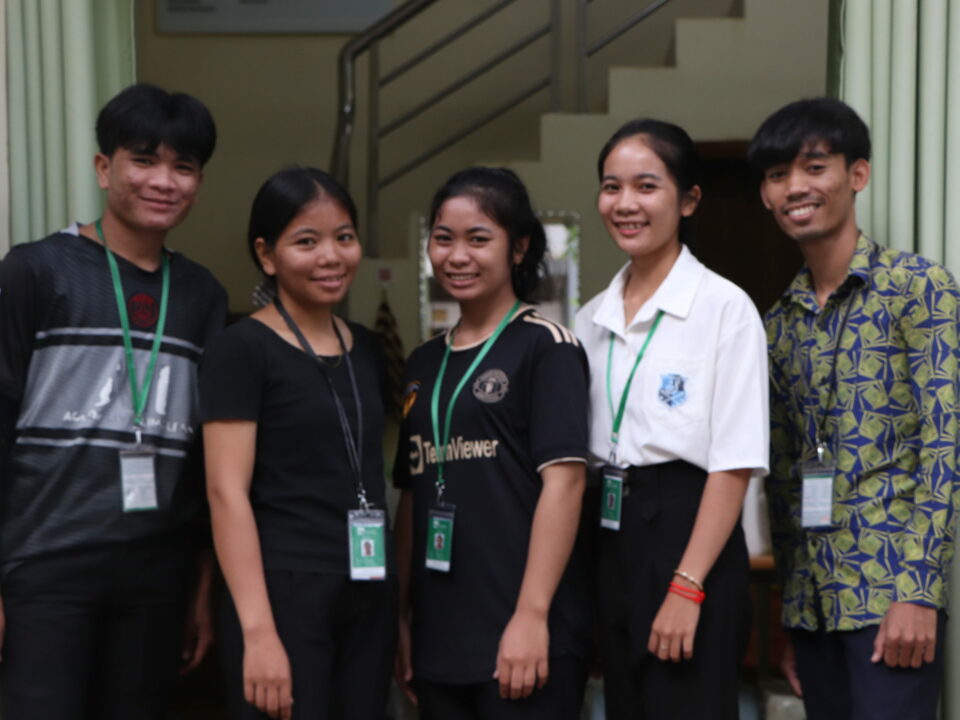Dream Manager’s Program: Barang Tho
November 28, 2011Third quarter reports are now online!
December 19, 2011by Lout Chum

Children are playing a leadership game named "Building the temple" during the training at Prasat Khna Jo pagoda campus.
Photo Credit: Vannak Lach
This fall, PEPY’s Community Development Program provided life skills training to 90 children in two courses which last for four days in each course. We provide this training to new members of Child-to-Child project at the beginning of each school year. The training was at Khnar Jo temple.
What are life skills training? Why do we need to provide this training to children? How does it impact children and community?
Some people might give different definitions of life skills. At PEPY, the word life skills means the skills of making decisions, problem solving, communication, team building, critical thinking and leadership skill.
What did we teach children? We did not give them text book lessons, workshop, or make them sit through a presentation. We provided the students with the active and cooperative learning activities.All the activities had the main idea of team work, team building, and good communication. Children need to think deeply and do the reflection after they have finished any single activity. To do so children can also improve their critical thinking skills and analytical skills whenever they are faced with the hard problem in their real life.
Some people may feel that it is a strange training which they never heard or seen. But in fact, it is very useful and powerful to inspire and motivate children to have positive thought and behavior to help their education, health, and future dreams.
How do we know that children changed their thoughts and behavior? And how do we know that children have good team building, team work, good communication and problem solving?
To answer these questions, we would love to tell you that at the end of every life skills training course we always do training evaluation. And tools of evaluations were personal observation, and individual interview to gather information or the result from children then we compare with their capacity before they came to join our life skills training course.
The impact of this life skills training was very obvious – we found that the first day of seeing each other, children didn’t feel comfortable to talk with others and work together. But after one day was past, they seem have good communication, started knowing each other, and were good at team working, and team building.
During three nights and four days, the children experienced staying far away from home and family and learned to take responsibility for their day life without their older brothers, sisters, and parents’ help. So children start to be strong, they learned to live by themselves; they learned to solve their own problems. And this impact is what we want them to get and have, because it is the leadership skill for their daily life.



